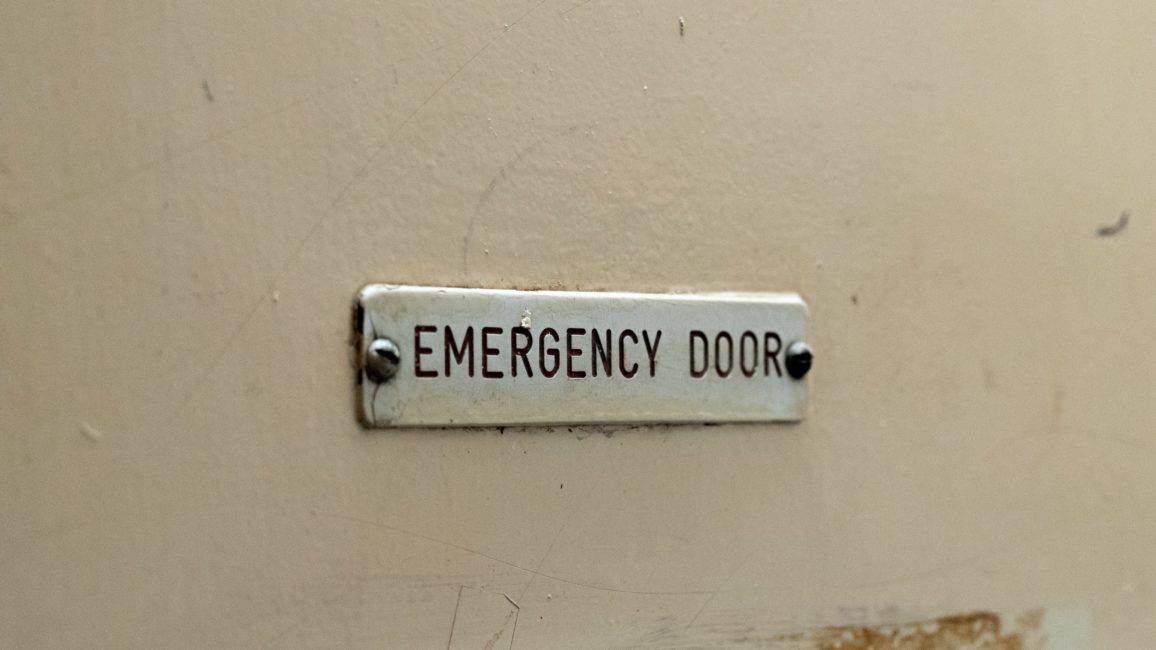It has been quiet around here for a few months – and often, when that happens, bloggers open up with an apology for falling off the face of the Earth and not posting. But the truth is that our hiatus was intentional. We pulled the ripcord on our self-care parachute and implemented an emergency self-care plan.
Ideally, we would all practice self-care proactively and preventatively to the point where we never needed to use emergency self-care. Unfortunately, ideals are sometimes aspirational, and the past 18-months have been nothing short of extraordinary.

Emergency self-care is an option we can all execute when overwhelmed and burnt out to create space to manage our burnout in the short term. We like to think of emergency self-care as righting a boat that is tilting dangerously or slowing a train that feels out of control – emergency self-care can put the brakes on an emotionally unsafe situation where we are on a path to burnout or worse.
Emergency self-care is an option we can all execute when overwhelmed and burnt out to create space to manage our burnout in the short term.
Here, we share our tips for how you can pull your self-care ripcord if you need emergency self-care:
1. Choose a time frame for your emergency self-care plan.
Emergency self-care plans work best when they have a defined time. During this time, you will drastically reduce demands competing with your wellbeing, and this is easiest to do with a defined chunk of time. If you are familiar with Dialectical Behavior Therapy (DBT), you might recognize this skill as “taking a vacation from life.” How long do you need? A week? A month? Several months? If you’re unsure, start with a shorter and more manageable period: We suggest one week as a minimum
2. Review what absolutely must happen in that time frame.
While it’s common to have a million items on our to-do lists as academics, the reality is not everything is always as crucial as we think it is. What responsibilities absolutely must happen during your emergency self-care time? You will need to choose your definition of “must,” but we advise you to be as ruthless as possible. Our recent emergency hiatus was driven mainly by Jorden, and her definition of “absolutely must” included keeping graduate students on track with their dissertations, anything related to preparing her case file, and previously scheduled presentations. Everything else was placed on hold, and new requests received an automatic decline.
3. Plan how to pause or end everything else.
After deciding what you must still do during your emergency self-care, it’s time to figure out what to do with everything else on your plate. Can it be paused? Not done at all? Delegated to someone else? As difficult as it was to do, Jorden decided to stay her research until the Fall – admittedly an option available to her because she has tenure. What can you pause or end?

4. Accept and push back against unhelpful thoughts.
It’s completely normal when trying to slow down the waves of overwhelm for unhelpful thoughts to arise: “I can’t do this,” “I’m going to get too far behind,” “Other people don’t need breaks,” “I’m not cut out for this,” and more. A vital ingredient for emergency self-care is expecting these thoughts to arise, accepting them as expected, and building the habit of mindfully acknowledging them and letting them flow by. These thoughts don’t mean that something is wrong with you, and they certainly don’t mean that you shouldn’t take an emergency self-care break. They are your mind trying to be helpful. But you know better: What you need is self-care, not to throw yourself into a never-ending pile of work and ignore your health. Thank your brain, but remind it that you will be sticking to your plan. (Note: Having a time frame makes accepting these thoughts without getting caught up in them much easier!).
5. Look after your basic needs and add a little (values-informed) joy.

The goal of emergency self-care is to right your boat when it is listing; you are using emergency self-care to get yourself back to a place of more stability. An excellent place to start is basic needs: Are you getting enough sleep? Drinking enough water? Resting? Your most critical basic needs will be unique to you. We also recommend that you add a little (values-informed) joy for motivation – even if it’s only 15 minutes a day to do something that pleases you.
6. Have something to look forward to when your emergency cocoon ends.
Emergency self-care won’t be of much use if you dread having to “return” to your usual state of affairs once your break ends! Build something for your return that motivates you, that you want to do, accomplish, or enjoy so that you don’t undo all of the benefits of your emergency self-care. For Jorden, it was taking her UofS vacation and returning to blogging and working here on Teach Me Self Care.
Limits of Emergency Self-Care
There are some limits on emergency self-care plans. Emergency self-care should not be our general state of being! It is essential to prioritize our self-care and find balance (we know, we know – an overused word in the self-care world) between our lives and wellness. Emergency self-care should be something you rarely implement. If you find yourself using (or even wishing for) emergency self-care frequently, you should consider that a sign that your current approach to work, life, and self-care might not be sustainable. And last, it is important to recognize when our needs go beyond emergency self-care: Our burnout might be a sign of something more serious, like depression or severe anxiety. An essential act of self-care is knowing when we might benefit from seeking professional help.
In self-care solidarity,

